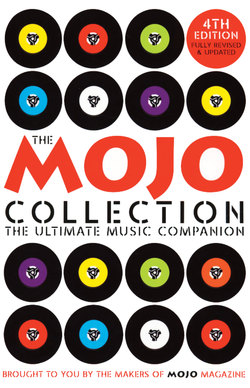Читать книгу The Mojo Collection - Various Mojo Magazine - Страница 163
На сайте Литреса книга снята с продажи.
Richie Havens Richard P Havens 1983 Double folk apocalypse from the Woodstock Freedom man.
ОглавлениеRecord label: Verve Forecast
Produced: Richie Havens and Mark Roth
Recorded: RKO Sound Studios, New York; early 1969
Released: May 1969
Chart peaks: None (UK) 80 (US)
Personnel: Richie Havens (v, g); Arnie Moore, Carol Hunter, Brad Campbell and Stephen Stills (b); Skip Prokop and Don MacDonald (d); Weldon Myrick (sg); Paul Williams (g); Jeremy Steig (flute); Colin Walcott (sitar); Paul Harris (p); Warren Bernhardt (k); John Ord (p, o); Carter CC Collins (congas)
Track listing: Stop Pulling And Pushing Me; For Haven’s Sake; Strawberry Fields Forever; What More Can I Say, John; I Pity The Poor Immigrant; Lady Madonna; Priests; Indian Rope Man; Cautiously; Just Above My Hobby Horse’s Head; She’s Leaving Home; Putting Out The Vibration And Hoping It Comes Home; The Parable Of Ramon; With A Little Help From My Friends; Wear Your Love Like Heaven; Run Shaker Life; Do You Feel Good?
Running time: 69.37
Current CD: Not currently available
Further listening: Mixed Bag (1967); Alarm Clock (1971)
Further reading: They Can’t Hide Us Anymore (Richie Havens and Steve Davidowitz, 1999); www.richiehavens.com
Download: Not currently legally available
It’s been said about a lot of albums recorded between 1967 and 1971, but what were they on when they made this?
Thanks to that landmark performance at 1969’s Woodstock Festival – hollering ‘Freedom!’, hammering away at a battered acoustic guitar – and such albums as 1967’s Mixed Bag and 1971’s The Great Blind Degree, the common perception of Richie Havens is of a rough-edged folk shouter dealing in ten-cent peace ’n’ love. His background was a folk one, growing up in the Bedford-Stuyvesant district of New York, hanging out with street-corner harmony groups and watching the legendary Dino Valente and Fred Neil harmonise at The Cafe Wha?. He studied the songs of Neil, Hardin and Gene Michaels and perfected his trademark open tuning technique (playing all six strings and using his thumb to make different chords at every fret stop). However, his first two albums for Jerry Schoenbaum’s MGM offshoot, Verve Folkways, pushed that ‘folk’ definition to the limits. It was a new label with free reign and on Mixed Bag and 1968’s Something Else Again producer John Court told Havens to try everything.
‘He said we should avoid songs of any one type,’ says Havens. ‘He told me I could sing opera if I wanted.’ It all made for a distinctive combination of Village folk, New York pop and a rumpled psychedelia which sold over a million copies. Richie became a valuable commodity and MGM gave him the freedom to set up his own Stormy Forest production company and make the Richard P Havens 1983 double album.
It was a stunning, labyrinthine achievement – combining the fractured hippy visions of Leonard Cohen, Donovan, The Beatles and Dylan with such cryptic Havens folk puzzles as Indian Rope Man and Just Above My Hobby Horse’s Head.
‘The year was 1969,’ he explains. ‘The title 1983 was based on the idea that I thought we were already in the world created in George Orwell’s 1984, which warned about the dangers of a monolithic society. My album said there was still time brother, but not much …’
After Woodstock, Richie Havens was set for life, securing a $650,000 deal with MGM that included his own office on the twentieth floor. Apocalyptic urgency went out of the window. He would make other great records but nothing ever approached the bewitching insanity of this one.
